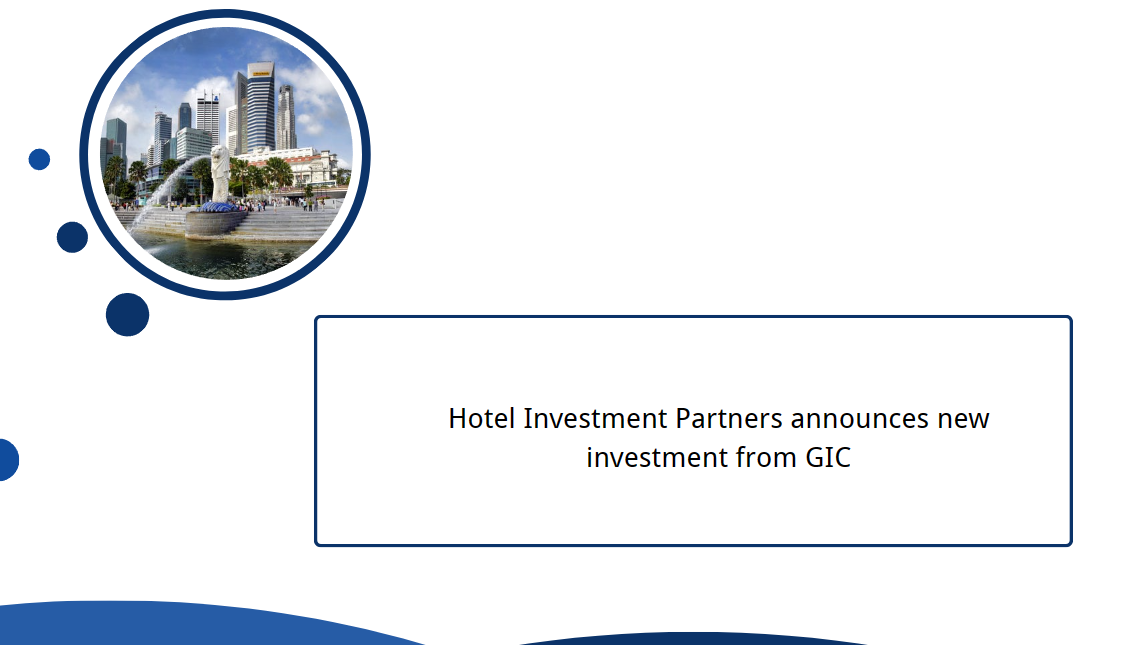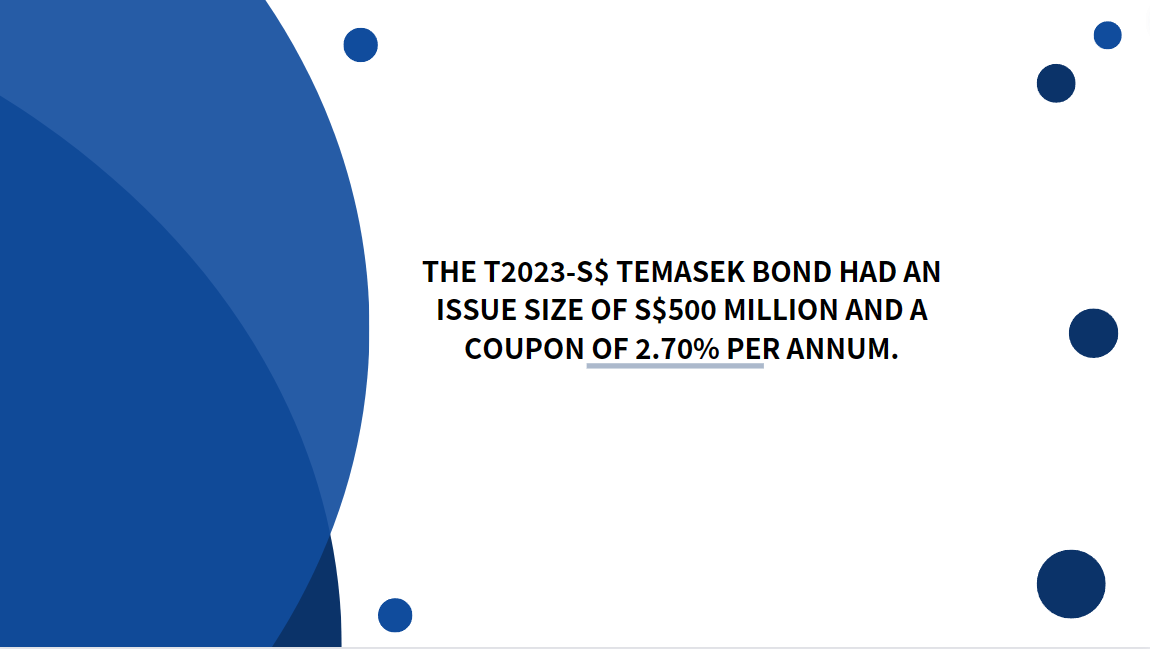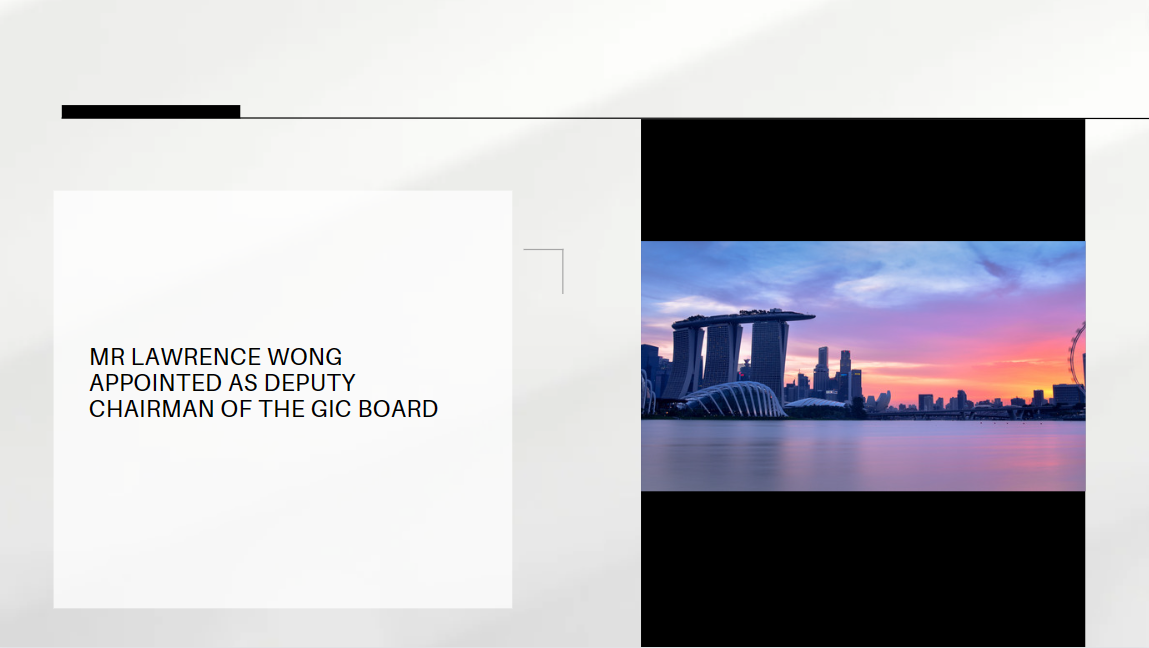"Doing Well, Doing Right, Doing Good"
Mr David Gerald, Founder, President and CEO of Securities Investors Association (Singapore)
Distinguished guests, ladies and gentlemen, good morning.
I am delighted to join you for this year's Corporate Governance Conference.
I am especially heartened that you have chosen as your theme - “Building Trust through Effective Corporate Governance”.
TRUST AS THE BEDROCK OF THE ECONOMY
Trust is a critical resource for the market economy to function and grow.
As the American Nobel-Prize-winning economist Kenneth Arrow puts it: “Virtually every commercial transaction has within itself an element of trust. It can be plausibly argued that much of the economic backwardness in the world can be explained by the lack of mutual confidence.”
Empirical research shows that trust is a key driver of economic outcomes both at the macro and micro levels.
Countries with higher levels of trust tend to have higher incomes. [0]
The rate of investment and economic growth are enhanced in high trust societies because trust reduces transaction costs. [0]
More than any other sector, the financial services sector is built on trust.
When depositors do not trust their bank, they will flock to withdraw their monies.
We saw this with Credit Suisse: the loss of confidence and trust can quickly lead to the end of a bank.
If there is no trust in the payments systems, consumers and merchants will be willing to transact only in cash.
This will make digital banking and e-commerce as we know it impossible.
Without trust in the capital markets, investment to support growth and enterprise will diminish.
Investors’ perception of risk will be high, and they will demand high returns or much collateral, thereby raising the cost of capital for businesses.
Good corporate governance is fundamentally about building trust. There are three ways in which trust can be built:
doing well
doing right
doing good
DOING WELL
I will begin with Doing Well, focusing on three sets of players doing their jobs well:
the board of directors which oversees the business;
the auditors of financial statements; and
the shareholders who exercise market discipline.
Board of Directors
Let me highlight two areas where corporate boards can do better: introspection and diversity.
We already have some form of introspection built into our corporate governance framework.
Under the Code of Corporate Governance, boards are required to undertake a formal annual assessment of their effectiveness, and that of each of its board committees and individual directors.
The assessments are based on objective performance criteria recommended by the nominating committee and approved by the entire board.
Listed companies are expected under the Code to disclose how the assessments have been conducted.
But introspection on performance has been an area of missed opportunity for most listed companies here. The board evaluation process is a critical area for boards to do better in and gain the trust of their stakeholders. Here’s what the 2022 KPMG survey commissioned by the Corporate Governance Advisory Committee (CGAC) found:
Around half of listed companies are still providing boilerplate disclosures and are unwilling to disclose any objective performance criteria.
The contributions of board members are often limited to their rate of attendance at board meetings.
Boards often do not address the outcome of any assessments and the actions taken to address any gaps identified.
A second area for improvement in corporate boards is diversity in skills and expertise.
Boards need to look beyond the more traditional areas of expertise such as accounting and legal expertise and consider bringing in experts in emerging areas like technology and sustainability.
The specific skills and experiences required will depend on the industry, size, and strategic objectives of the company.
For experts in some highly sought after areas such as technology and sustainability, listed companies should consider tapping on the board matching services provided by the Singapore Institute of Directors.
One useful tool which boards can potentially adopt is the board skills matrix where each board member’s skills and qualifications are mapped against a list of key areas of expertise.
Gaps identified through the board skills matrix could guide recruitment efforts when filling board positions.
This is an emerging best practice in some jurisdictions but has yet to be widely adopted by listed companies here.
Auditors of Financial Statements
Reliable financial statements and disclosures are key for building trust in capital markets.
Investors make decisions, relying on the quality of the financial statements and disclosures put out by listed companies.
There are three dimensions for fostering trust in a company's financial disclosures:
what is reported – it must be truthful
how it is reported – it must be transparent
when it is reported – it must be timely.
The responsibility for preparing financial statements lies not just with the corporate accountants but the entire management and the board.
Auditors play a critical role as the independent gatekeeper of financial reporting. We rely on them to provide assurance that the financial disclosures are true and fair.
ACRA has recently amended the Accountants Act to strengthen the quality of audits. Two key shifts are worth noting.
First, ACRA’s assessment framework for engagement inspections of auditors has shifted from a “pass-fail” binary regime to a tiered regime where there are four possible outcomes: “Satisfactory”, “Satisfactory with findings”, “Partially Satisfactory” and “Not Satisfactory”.
This provides a more meaningful and granular indication of how well an auditor is complying with ACRA’s requirements.
ACRA will impose remedial actions or sanctions on auditors who have been assessed to be “Partially Satisfactory” or “Not Satisfactory”.
Auditors who have obtained a “Not Satisfactory” inspection outcome are required to disclose their inspection findings to the client of the audit engagement that had been inspected.
ACRA will help companies interpret and understand the inspection findings, so that the company audit committees can engage the auditors on remedial actions.
This acts as a powerful incentive to the auditors to improve their performance, and to the audit firms to ensure high standards and internal quality control of the professionals they employ.
Shareholders
A third group of stakeholders that needs to do well is shareholders. We need more informed public discourse on corporate performance and strategies.
SIAS has been doing excellent work in helping retail investors find their collective voice.
Investors who are unsure of the procedures to pose questions at shareholder’s meetings can take guidance from a useful compilation of best practices jointly put together by SIAS, the Singapore Institute of Directors, and SGX RegCo. The document is freely available on SIAS website.
SIAS runs the Q&A on Annual Reports initiative aimed at raising the quality of questions at AGMs and helping shareholders to better understand the company they invest in and to meaningfully engage the board.
The media has an important role to play in informing and educating shareholders, especially retail investors.
Institutional investors have access to good quality paid research on corporates and are able to make informed decisions. Retail investors rely a lot on media reports.
Here are some suggestions for media reporting on listed companies:
Pay more attention to governance aspects. Do not stop at headline financial performance for the past year which may not mean much if the company does not have good governance to sustain it this year.
Call out questionable and unsatisfactory disclosures. This will make companies think twice and read their market announcements thrice before issuance.
Highlight good governance and disclosure practices. Reporting could even probe why such practices could not be adopted for peer listed companies.
I hope to see the day when media reports on company annual results focus on substantive performance and strategy issues rather than just how much the CEO is being paid.
Transparency on management remuneration is important but it is not the most important thing in evaluating a company’s performance.
DOING RIGHT
Next, Doing Right. Simply keeping within the boundaries of what is legal is not sufficient to earn trust. Trust is earned by doing the right thing.
The external discipline imposed by mandatory rules must be complemented by the internal culture and ethos of the company.
By culture and ethos, I mean the shared values, attitudes and norms that guide actions in a company.
Because culture develops from within a company, it invites a certain resonance from the members of that company - in a way that will be difficult for an externally imposed set of rules to achieve.
In short, rules tell us what we can do, but values tell us what we should do.
Singapore’s Code of Corporate Governance sets out the role of the board in setting an appropriate culture, values, and ethical standards of conduct at all levels of the company.
The Practice Guidance to the Code calls on directors to establish an appropriate tone-at-the-top, desired organisational culture, and standards of ethical behaviour.
The Hong Kong Stock Exchange has introduced a new provision on corporate culture following its review of corporate governance in 2021:
that the board should establish the issuer’s purpose, values and strategy, and satisfy itself that these are aligned with the issuer’s culture; and
that all directors must act with integrity, lead by example, and promote the desired culture.
MAS will work with SGX and CGAC to assess if there is merit in introducing a similar provision in our Code of Corporate Governance.
But the right culture has to be built from within companies, they cannot be imposed from outside. Let me recount what I said eight years ago on what financial institutions must do to “get the culture right”. I think they apply as much to listed companies.
First, lead by example.
The board and management must clearly articulate the firm’s core values and purpose.
They have to demonstrate commitment and credibility by “walking the talk” with concrete policies, processes, and actions.
The firm’s leaders must themselves be seen to be guided by those same qualities they want their staff to emulate.
Second, create a safe environment for whistle-blowing.
This means providing the necessary mechanisms to challenge, question, and report ethical breaches.
Listed companies are already required to put in place and disclose their whistleblowing policy – and I am encouraged to see that most have done so.
But it cannot stop at just formulating and disclosing the policy. Boards and management must:
announce and make the channels known to all;
affirm that everyone has a part to play in calling out wrongdoing; and
assure continually that it is safe to do so – that identities will be kept confidential; investigations will be done independently; and the whistleblower will be protected against unfair treatment.
Third, align human resource policies to a culture of trust and ethics.
The incentives for ethical conduct must encompass all HR policies and practices: compensation and benefits; recruitment and on-boarding; training and coaching; promotion and career development.
HR policies and practices must dispel any perception that ethical conduct is a constraint on profitability or hurdle to career advancement.
DOING GOOD
Finally, Doing Good. Trust is built when companies seek to do what is good – by demonstrating genuine consideration for all stakeholders in society.
Companies must conduct their profit-making activities with full transparency of how they are impacting the community and the environment they are operating in.• There are many dimensions to doing good. In the interest of time, I will highlight just one: sustainability.
Climate change is fundamentally changing the landscape in which businesses operate in, creating new risks and opportunities. What should boards of companies do?
First, they should implement high-quality and credible sustainability disclosure practices.
Second, they should steer credible transition planning within the company to promote long-term value creation.
Third, they should lead by example within the company’s value chains, for instance, through responsible supplier practices, thereby contributing to the broader greening of the economy.
MAS and SGX understand the challenges that companies face in sustainability reporting. But there are ways to overcome these challenges.
First, multiple reporting frameworks. Companies today navigate an “alphabet soup” of sustainability disclosure standards.
The issuance of the International Sustainability Standards Board (ISSB) S1 and S2 standards in June this year goes a long way towards mitigating this issue.
The ISSB standards establish a global language for sustainability disclosures that is investor-focused, and brings consistency, reliability and comparability.
This is why the ISSB has been strongly welcomed by regulators and policymakers around the world.
The Sustainability Reporting Advisory Committee convened by ACRA and SGX has consulted on a roadmap for Singapore companies, starting with listed and large non-listed companies, to embark on sustainability reporting in line with ISSB standards.
Second, data availability and accuracy. The process of ESG data acquisition is manual, cumbersome, costly, and prone to errors.
Companies can explore nascent Green FinTech solutions to address data problems.
For example, with IoT devices, companies will be able to collect data such as temperature, humidity, pollution, oxygen levels, radiation levels, and transmit the data securely for analysis.
Google has piloted the use of aerial imagery to estimate tree canopy coverage across the City of Los Angeles.
Satellite imaging is also being used to track reforestation and carbon sequestration projects.
I will not pretend we have a comprehensive set of solutions or that they are all scalable. But there is good momentum in this space and companies should acquaint themselves with the latest developments.
Third, lack of capacity to comply with sustainability reporting requirements.
Companies can leverage technology to help them with reporting.
For example, an ESG disclosure portal, called ESGenome, launched by MAS and SGX last year, can help businesses disclose ESG information in a structured and efficient manner.
The phased adoption roadmap set out by SGX, with a gradual scaling up of requirements, should help to encourage companies to get started.
For example, requirements around reporting Scope 3 emissions can come in later, giving companies time to solidify capabilities around collecting the needed data.
There is a growing number of capacity building programmes for sustainability reporting.
SGX is partnering Asia Sustainable Finance Initiative to roll out a suite of online sustainability-related courses designed specifically for Asia-based professionals.
CONCLUSION
Let me conclude.
I have provided a somewhat long list of areas for improvement in our corporate landscape –
enhancing introspection and diversity in our corporate boards;
strengthening the quality of financial audits;
empowering shareholders to exercise good market discipline;
promoting a corporate culture of ethical conduct; and
contributing to environmental sustainability.
But I would be remiss if I did not acknowledge the strong progress that Singapore has made since the Code of Corporate Governance was first issued in 2001. The vast majority of listed companies here take corporate governance seriously and are getting better at it.
A review by KPMG in 2022 of listed companies’ compliance with the Corporate Governance Code found general improvement in disclosures compared to a similar review done in 2016.
The Singapore Governance and Transparency Index 2023 indicates significant improvement in the average scores and disclosure standards for Singapore listed companies. The 2023 score was 89 points, compared to 60 points in 2017.
According to the Asian Corporate Governance Association’s widely-followed corporate governance rankings of 12 Asia-Pacific markets, Singapore was ranked joint second with Hong Kong in 2020.
But as with everything else that Singapore does, we never rest on our laurels. Lifting standards of corporate governance and strengthening trust is an ongoing effort. We must benchmark to the best-in-class globally and seek continuous improvement.
Let us do well, let us do right, and let us do good.
***
[1] Algan, Y. and P. Cahuc (2014). “Trust, growth and well-being: New evidence and policy implications”, in Aghion, P. and S. Durlauf (eds.), Handbook of Economic Growth, Vol. 2, Elsevier, North Holland, Amsterdam.
[2] Zak, P. J., & Knack, S. (2001). Trust and growth. The Economic Journal, 111(470).























































First, please LoginComment After ~